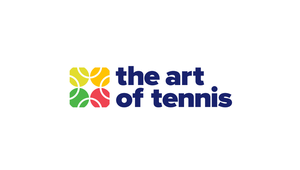5 Fundamentals of developing a Junior Tennis Player (and person)

There are of course multiple ways to develop young tennis players. These can be technical, tactical, physical along with the development of better mental routines and opportunity for better sparring partners. Before we even get to some of these areas there are some fundamentals which must be in place to achieve lasting success. Some of these are as follows:
1. Independence
Your tennis kid should be on the road to full independence in arranging their own tennis. Tennis can be the vehicle which teaches your child how to take ownership and responsibility over something.
Parent tip – start by getting your little tennis player to pack their own tennis bag and drink bottle. Grow further responsibilities from there.
2. Responsibility
Your tennis kids needs to take responsibility for everything that happens to them at tennis. There will be a times where they aren’t fully responsible for a result, such as bad line calls or injury but dwelling on this will only weaken them long term. As long as they work hard and aim to improve and learn then that is all that matters anyway. Responsibility = growth.
Parent tip – Try not to make excuses for your child’s wins or losses. This only reinforces to them that they don’t need to be responsible. If your major focus is on their effort and training (rather than results) then this will give them the comfort of being responsible for themselves.
3. Practice Kaizen
The word ‘kaizen’ is a Japanese word which essentially translates to ‘continuous improvement’. The gradualist approach vs the great leap forward approach is an important debate in all circles including the development of tennis players. We believe that although great leap forwards can and will happen, the focus needs to be on daily improvements.
Parent tip – Be aware of trying to look for short cuts for your child. This may be a new coach, academy, racquet, doubles partner etc. Focus instead of supporting their daily rituals which support their tennis.
4. Instrinsic motivation
If it’s not a ‘game’ anymore your child will lose intrinsic motivation. Extrinsic motivation such as rankings, trophies, money, status etc can easily result in burnout along with a strained parent child relationship. If a child is instrinsically motivated they will get the best out of themselves whilst not losing balance and self esteem.
Parent tip – Encourage and talk about enjoyment of the game. >Read further on motivation types.
5. Self Awareness
Your tennis child will develop their self awareness over their tennis journey. This doesn’t mean they meditate on mountaintops (although they could and it will be beneficial) but it does mean that have some awareness of the thoughts that go through their head during tennis. Many tennis players battle to play ‘in the moment’ and have their thoughts future orientated such as “what if I lose?” and “who do I play next?” or past orientated “I cant believe how bad that shot was!” or “I am playing terrible!”
Parent tip – encourage quiet time for your child. In the car on the way to tennis or on the way home, don’t talk about tennis or don’t talk much at all. This may help them get into a better ‘headspace’
There are obviously many more fundamentals important to forming the right mindset, attitude, values and motivations of a young tennis player but these 5 are essential to what we believe in at Scarborough Tennis Academy.
Regards
Rick Willsmore
The Art of Tennis
blog.scarboroughtennis.com.au
rick@scarboroughtennis.com.au



![Motivation2_thumb[1]](https://i0.wp.com/blog.scarboroughtennis.com.au/wp-content/uploads/2014/07/Motivation2_thumb1.jpg?resize=298%2C213&ssl=1)
















